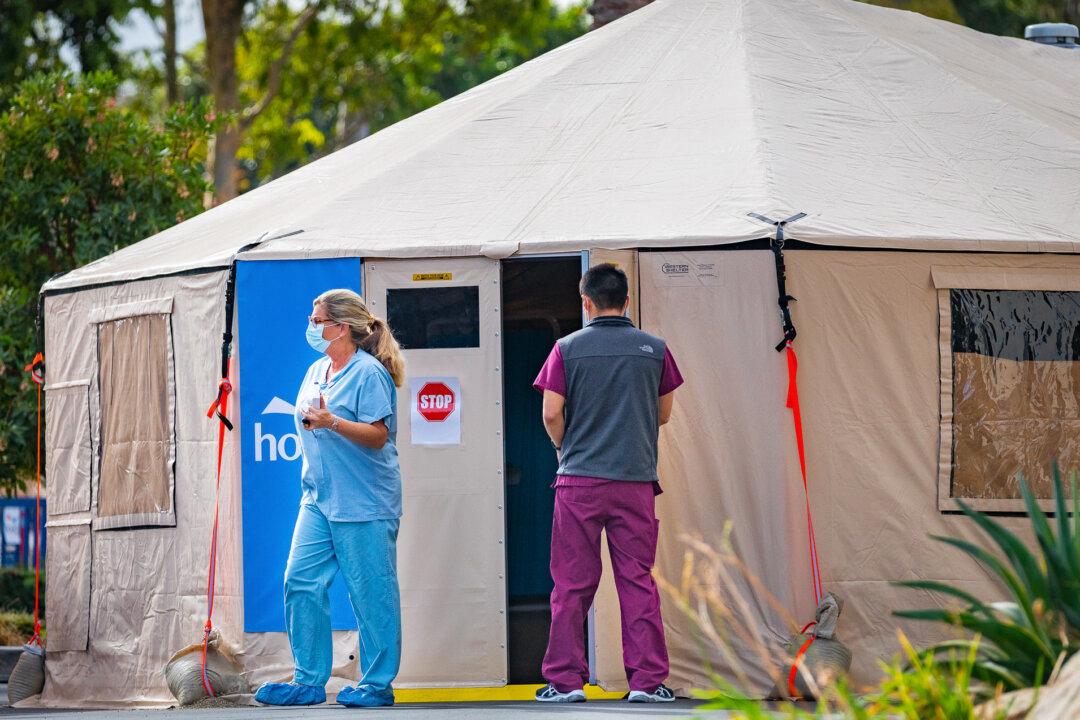SANTA ANA, Calif. (CNS)—Orange County continued its record-setting pace of COVID-19 hospitalizations Dec. 28 with 2,031 patients, including 453 in intensive care, as officials worry about another holiday-related surge on top of the spike related to Thanksgiving.
The Orange County Health Care Agency (OCHCA) also reported 2,144 newly diagnosed infections, raising the county’s cumulative case count to 149,607, but the death toll remained unchanged at 1,846.





